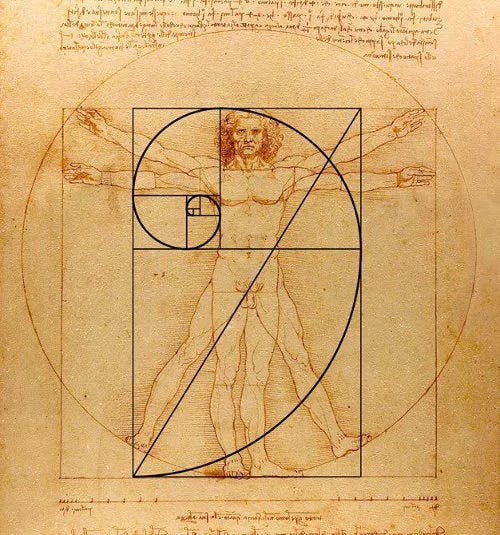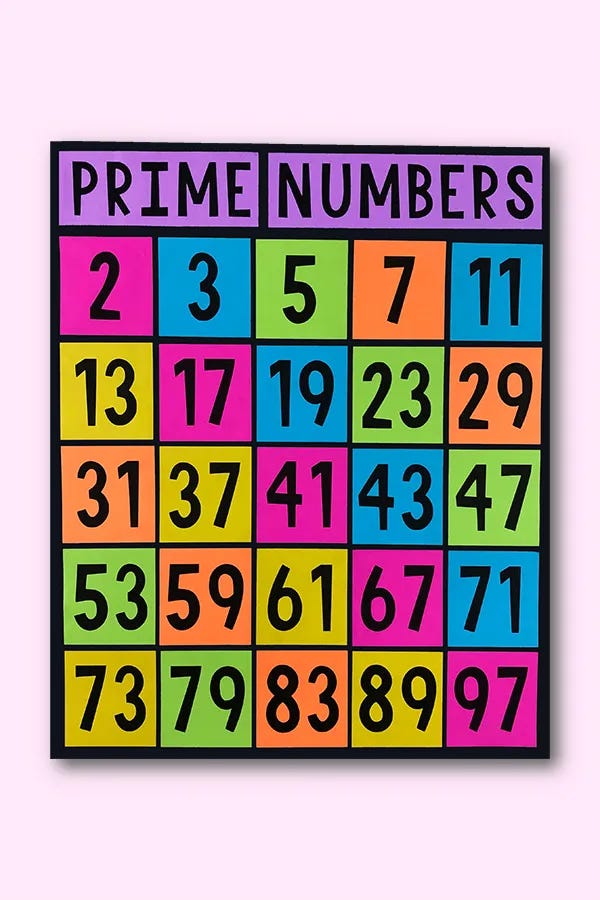Critical Consciousness is Evil
how "equity" destroys opportunity for those who need it most
This is an expanded and edited version of something I wrote six months ago.
Four Days Is A Long Time
During my junior year of college, my food stamps ran out and a mailed check I was waiting on, payment for a part-time job, was late. As a consequence, I didn’t eat for four days. Those four days were physically and psychologically painful. I was sad and angry, listless and numb, despairing and full of rage. I vacillated between self-pity, self-disgust, and an emotional state that was a weird combination of the two.
That semester, I was taking very difficult classes. It was my first attempt at programming, as well as being the semester I took Calculus 3 and multiple regression (basically the beginning of advanced statistics). Those four days were terrifying and agonizing on multiple levels, and even though they were only four days, they continue to affect me.
I think a lot about those four days. (I have written before about poverty and my journey out of it.)
I think about them each and every time I do what I did this morning: pay all my bills, stick some money in savings, and budget some money for a treat—this month, I will buy myself some new incense.
The one and only reason why my pantry is full, my utilities are paid a month ahead, and I can have small treats, like new incense, anytime I want them?
Because I got good at mathematics.
Getting good at mathematics was a direct path from desperate poverty to a middle-class life. It was the best and most effective way to ensure I wouldn’t continue my natal family’s legacy. Getting good at mathematics gave me a skillset that nobody could argue with, dismiss, or deny.
It gave me both confidence and the freedom to exercise that confidence.
My childhood was filled with trauma. Then I spent my early adulthood leaving the religious cult I grew up in and learning to see the world through a new pair of glasses—a transformation that was brutally difficult, confusing, and often terrifying.
Mathematics was my salvation, both literally and metaphorically.
In mathematics, it doesn’t matter what color your skin is or what the professor thinks of your sex, gender identity, or disability. If you get the right answer, you get the right answer. If your proof is valid, it is valid. If your logic is sound, it is sound.
Critical Consciousness is Evil
Critical consciousness: the Woke mindset that takes absolutely everything and, like acid, dissolves it into politics, into power dynamics and axes of oppression, undermines everything. The Woke forces attempting to bring critical consciousness to mathematics and mathematics education are deliberately and consciously trying to make sure that no child counts on mathematics to be dependable—that no child ever recognizes in mathematics a set of principles, laws, rules, and methods that describe reality, that can be learned, and that can be mastered.
The practitioners of Woke bullshit and the method they use to impose it most effectively, critical consciousness, do not want children of trauma and poverty—children like me—empowered to make our own lives better by achieving definable skills and mastering dependable methods.
They want us all dependent on them, and on government.
What the Woke Brigade Tried to Do
James Lindsay has a really excellent recounting and analysis of the story of how the Woke brigade tried to muddy these waters, so I won’t rehash it here. Suffice it to say: there are now many academics, particularly teachers, who are proudly telling their students that 2 + 2 is sometimes 5, just to “own the cons.” They are lying, and lying in a way most evil and egregious. They are taking the certainty and dependability of reality itself away from kids by teaching them that mathematics is just like anything else: it depends on how you look at it; it changes with the wind; it’s culturally and context-dependent; blah, blah blah.
In so doing, they are truly hurting underprivileged and marginalized communities the most. The Woke recite this bromide about everything under the sun (“….of course, this affects Black and Brown bodies disproportionately…”) and it’s rarely true. This time, it is. Kids who grow up poor or marginalized, as I did (and yes, non-white kids do fall into that category disproportionately) need to know the power of mathematics. Mathematical excellence is a game-changer for employment, for opening other doors, for understanding the world.
Just as importantly, it is a game-changer for personal development and happiness. Getting good at math requires patience, persistence, work ethic, logic, and many other qualities that cross-pollinate into all areas of life.
Understanding mathematics is understanding the structure of reality.
Undermining the ability of children to trust that structure is egregiously unethical, a sickness that rises to the level of evil.
They Are Also Stealing Beauty
Besides opportunity to better themselves, both personally and financially, the Woke are trying to steal beauty from those who need it most.
Mathematics is crucial.
Yes, it’s how the bridges don’t collapse and the computers compute, and is crucial for so much else that we rely on. But that’s why it’s important for our lives, not why it’s important for our humanity.
Mathematics is the root of how we understand symmetry, and therefore beauty. It is also far more accessible than most people think. Let me show you what I mean.
Prime, Indeed
Prime numbers are very special. They are numbers that can only be evenly divided by 1 and themselves. 10 can be evenly divided by 1, 2, 5, or 10 and is therefore not prime; 5 is only divisible by 1 and 5, and is prime. Here are the prime numbers under 100, on a colorful chart:
The study of prime numbers is ancient and glorious. Euclid proved that there are infinite prime numbers about 300 years BC. They fascinate nerds of all stripes, even today, and there are many subsets of primes. Sexy primes are primes separated by 6 (like 41 and 47, or 53 and 59). Cousin primes are primes separated by 4 (like 19 and 23, or 67 and 71).
There is one, and only one, prime with two cousins: 7.
Yes, only one. I am 100% sure. I can say this with total certitude, betting anything you can name on it — everything I own, both kidneys, the lives of all the people I love most.
How can I know?
Any prime with two cousins would mean this scenario is true: three numbers in a sequence where the middle number (let’s call it p) is prime, p-4 is prime, and p+4 is prime.
You can see that this is true for 7. 7 is prime, 7-4 is prime, and 7+4 is prime. Our sequence is: 3, 7, 11.
To make our example simpler to follow, let’s focus on the first number and use it for our unknown. We would need to find three numbers where the first number (let’s call it n) is prime, n+4 is prime, and n+8 is prime.
As you can see, this fits with our 3, 7, 11 example. n=3. 3 is prime, and n+4 is prime, and n+8 is prime. 3, 7, 11.
Here is a fact about ALL numbers. In EVERY case, a number is either: evenly divisible by 3 (like 3, 9, 15, etc.); divisible by 3 with a remainder of 2 (like 8, 17, or 35); or divisible by 3 with a remainder of 1 (like 10, 19, or 28). There are no other possibilities.
Let’s return to our n, n+4, n+8 and see if it’s possible for them to all be prime if they are anything other than 3, 7, 11.
If n is not 3 and it is prime, then it is only divisible by 1 or itself. Therefore, since it is not 3 in our hypothetical, it MUST have a remainder of 1 or 2.
If n has a remainder of 1, then n+8 cannot be prime, because n+8 would be divisible by 3. 1 + 8 = 9 and 9 is divisible by 3.
If n has a remainder of 2, then n+4 cannot be prime, because n+4 would be divisible by 3. 2 + 4 = 6 and 6 is divisible by 3.
Thus there is one, and only one, situation where n, n+4, and n+8 are all prime, and that is 3, 7, and 11. 100% of the time, any other attempt to find two cousin primes will fail, because at least one number in any sequence of n, n+4, and n+8 will be divisible by 3. Thus the only one that works for all of them to be prime is the one that includes 3.
By the way, all you people who think you “just can’t understand” mathematics?
You just understood a number theory proof. Number theory is something I took for the first time as a senior mathematics major in university.
See? I told you it was more accessible than you think!
Some Hills Are Worth Dying On
2 + 2 = 4, not 5. Some of us will die on this hill. On this hill stands the very notion of reality itself, and all the positive effects that can come from mastering an aspect of reality.
Disadvantaged kids are the ones who can most benefit from mathematical excellence.
The Woke morons who are determined to destroy the ability of kids to trust that mathematics is dependable, achievable, and trustworthy are committing egregious acts of evil.
Do not let them suck you in.
Do not let them cause you to adopt a critical consciousness.
Do not let them silence you.
Call out their bullshit for what it is: evil, disgusting, and destructive.
2 + 2 = 4. I can prove it many different ways, but I know it in the marrow of my bones because of four days I spent being hungry, before mathematical excellence got me into the middle class and out of poverty.
Four days. Two days, plus two more.
Four.
Housekeeping: Comments are turned on for paid subscribers, as they are on most posts. If you would like a paid subscription but cannot afford on, email hollymathnerd at gmail and I’ll give you a free year.





I believe that teaching people to be financially literate is extremely important. When I asked my freshman year, now tenured economics prof roommate's opinion, he says it needs come through the math curriculum.
It's not hard, it just needs to start early, but even common core math doesn't do addition and subtraction of money until 5th grade, I believe. This is about five yrs too late
I've been reading (and writing about) The Critical Turn in Education by Isaac Gottesman. The more thinking I do about it, the more convinced I am that the whole point of Critical Pedagogy (education as raising critical consciousness) is to turn students into personality disordered adults whose minds operate on gnosis rather than knowledge or reason (Josh's and James's podcasts are the two I listen to most religiously).
You are absolutely right: Critical Consciousness is evil. It wants to replace the joy of discovery and learning with a pat on the head that you get from the cult leaders when you say what they want you to say. It wants to replace psychological health with an enduring feeling of constant persecution that is only ever marginally eased when they force someone to bow before the cult. It wants to cripple a student's ability to makes sense of the world and to find meaning in it.
I'm not sure how you feel about other people linking their Substack to your articles, but I've written a fair bit about it over on mine.